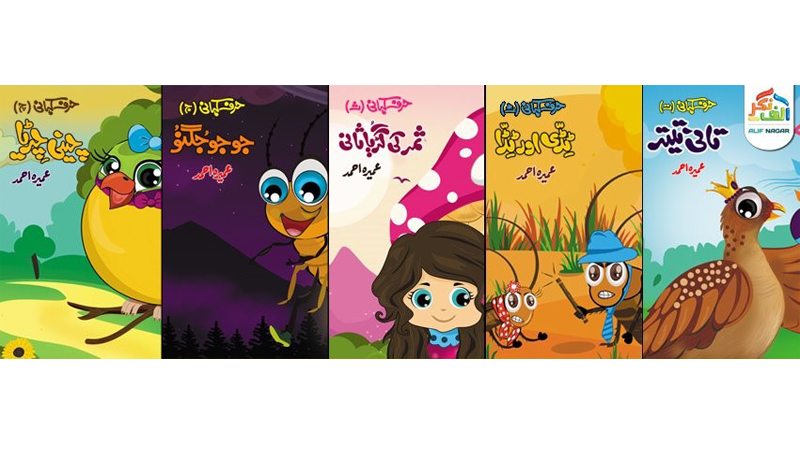 Umera Ahmad is a name that needs no introduction for Pakistanis.
Umera Ahmad is a name that needs no introduction for Pakistanis.
The writer of numerous novels and drama serials of Urdu language such as Peer-e-Kaamil, Amar Bail, Lahaasil, Man-o-Salwa, Zindagi Gulzar Hai, Daam, Doraha, Malal, Kankar, Shehr-e-Zaat, Dur-e-Shahwar, Uraan, Qaid-e-Tanhai and Meri Zaat Zara-e-Benishaan, Umera Ahmad has earned immense popularity and love of Pakistanis due to her interesting novels written in simple, easily understandable language and her family drama serials based on moral and religious values.
Lately, Ahmad has shifted her focus to children’s literature. She has not only been writing the decent, educational cartoon series ‘Jan’ aired on See TV, but has recently come up with a book series as well titled ‘Harf Kahani’ (Alphabet Story). The series tends to combine Urdu language and literature in the way that in each book, an Urdu alphabet is taught and the learning is made interesting by attaching a story along with it. Examples include Taani Teeter, Joo Joo Jugnoo, Tiddi aur Tidda, Popo Panda and Cheeni Chiriya.
The stance, which Ahmad takes regarding this book series, is that it endeavours to promote among Pakistani children, their native language which is Urdu. Various other stimulants have been mentioned by the writer in the series’ preface, the English translation of which is as follows:
‘Harf Kahani is my first effort for children’s literature. Children’s literature in Pakistan is on a decline, the reason of which is a lack of interest of good writers towards the genre. Children’s literature neither gives fame to the writer, nor a good royalty’
“‘Harf Kahani’ is my first effort for children’s literature. Children’s literature in Pakistan is on a decline, the reason of which is a lack of interest of good writers towards the genre. Children’s literature neither gives fame to the writer, nor a good royalty. The third and the most important reason for it is that parents no more want their children to study Urdu language,” she says.
When a language’s story becomes an old tale, the language correspondingly loses its importance. To promote Urdu language in Pakistan, it is necessary to give a new life to children’s literature. No doubt that the government has to take responsibility, it becomes a social responsibility of the writers as well to pen down at least something for children.
‘Harf Kahani’ by Alif Nagar publications is an example of this effort, which has been presented in the form of a series before you.
‘In presenting it before you, Shazia Khan, Sadia Shareef and Sameen Kausar have been very helpful. Without the help and support of these people, these books might not have reached you in such a beautiful condition’
“In presenting it before you, Shazia Khan, Sadia Shareef and Sameen Kausar have been very helpful. Without the help and support of these people, these books might not have reached you in such a beautiful condition,” she said.
This effort makes Ahmad a writer not biased towards one section of the society, which is the female gender, but brings her forward as someone equally concerned for children. On a broader level, it shows her love for the native language, the fall of which seems threatening to her.
Now that a writer herself has taken a step forward to inculcate awareness among children about their own language by creating a book series of indigenous literature, it becomes incumbent upon us to put aside excuses of a dearth of books for children in their native language, and walk hand in hand with the writer so that the genre may develop rapidly and continue to serve a good purpose.
The writer can be reached at m.ali_aquarius85@yahoo.com
Published in Daily Times, January 24th 2018.